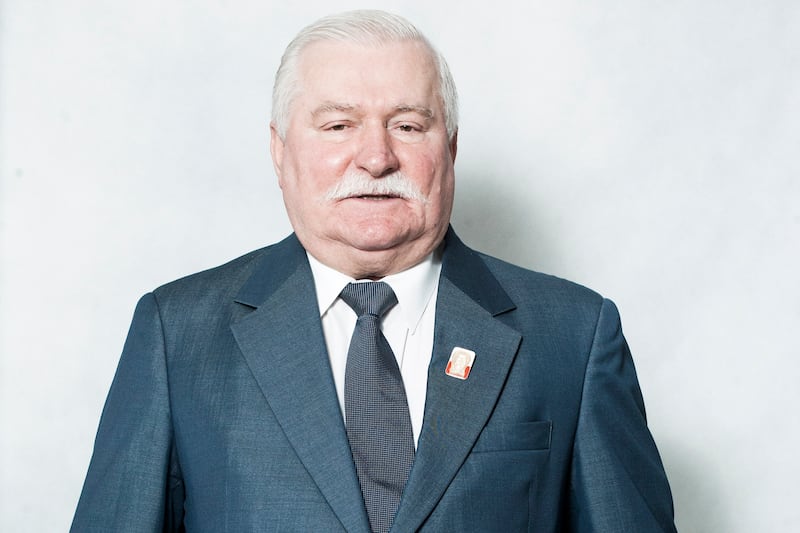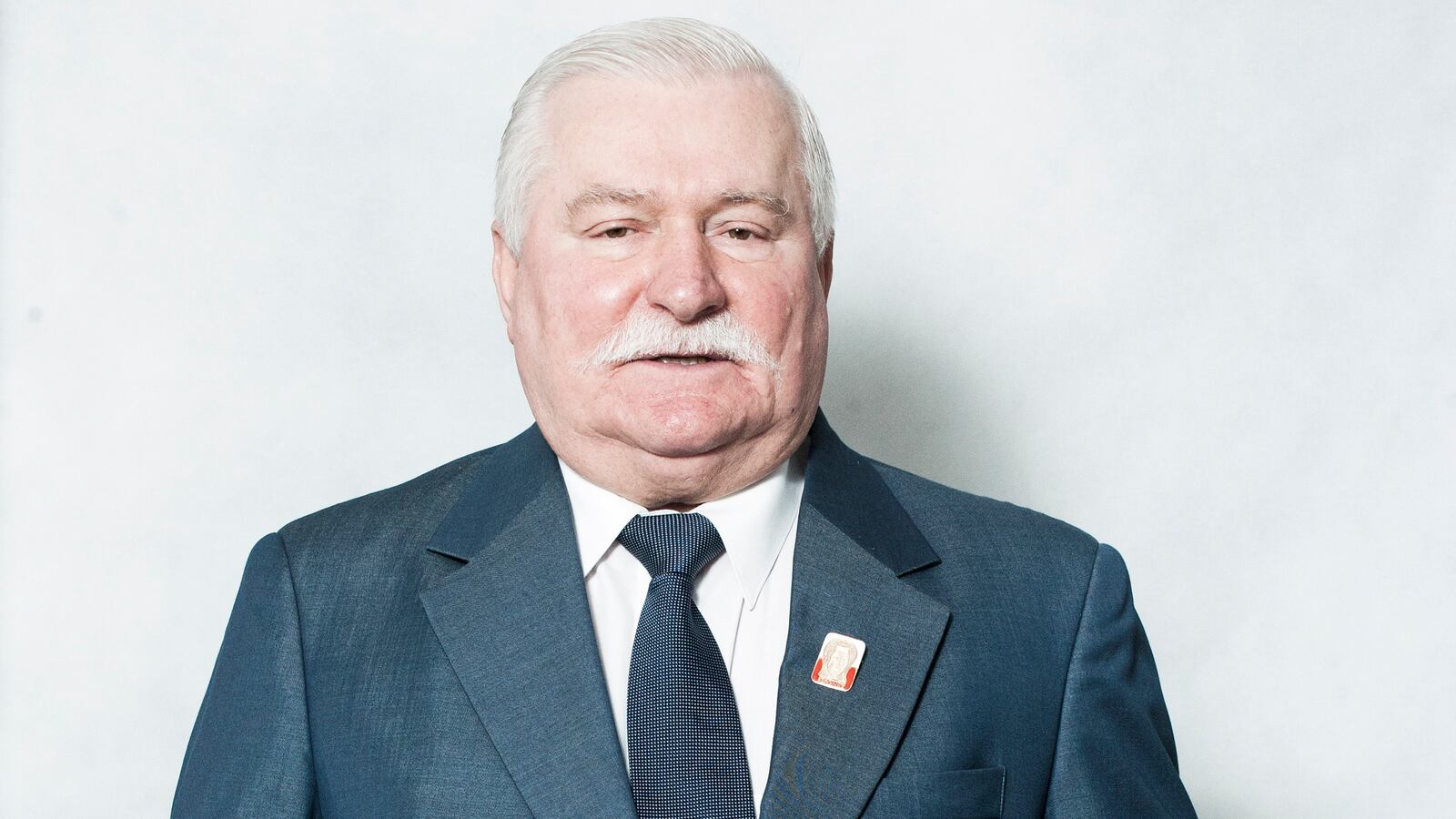Lech Walesa is one hell of an obdurate man; his stubborn leadership of Poland’s Solidarity movement punched the first cracks in the Soviet Union’s Iron Curtain almost ten years before the fall of the Berlin Wall.

Three decades later, there’s no sign of him mellowing. In London to promote Walesa: Man of Hope, a new biopic, he was on the warpath. He had “a tantrum” in front of The Times of London, accused the Polish embassy of conspiring against him, and stormed back to his hotel instead of sitting for a scheduled interview with The Daily Beast.
Eight hours later he was running late for a re-arranged meeting. After conducting a television interview, he suddenly decided he’d had enough and began barreling towards the exit. Only after another round of protestations, did he agree to sit back down and talk.
He used that same impatient passion to galvanize Poland into becoming the first Soviet Bloc nation to stand up against their masters in Moscow. The strikes he led, which began in the Gdansk shipyards and reverberated throughout the Soviet Union in the late 1970s, were the first sign that communism would eventually crumble from within.
Walesa’s legacy has since become more controversial—his presidency was marred by unilateral decisions, he’s made a series of incendiary anti-gay comments and he’s even been accused of being a communist informant—but there is no doubt that his personal determination turned the Solidarity movement into first a national, then an international, symbol of defiance.
In the one of the film’s opening scenes, the trade union leader explained that he became a great leader because of a fire of injustice that burned within him. “I’ve had this anger in my heart since I was a boy,” he said, in a sequence that was based on a real interview.
It seemed obvious that the anger was still burning. “No, no,” he told the Daily Beast. “And maybe anger was a bad word, I used the word anger to give a sense of the power I felt. It was an anger to improve things, to build things, not an anger for destruction.”
The engaging movie shot by Poland’s most celebrated director, Andrzej Wajda, charts the growing confidence of a man who inspired millions to risk their lives. At one point he is shown confronting a room full of Polish intellectuals who have spent years bemoaning communist rule, writing and talking. Walesa tells them he has no respect for their elite approach and says now is the time for someone to take some real action. “What a guy,” says one of the cowering intellectuals. “A working class chauvinist; he’s got balls though!”
Walesa agrees. “To lead in times of crisis,” he said, speaking via a translator. “I had to be brave, I had to take risks.”
He was as disdainful about the modern breed of leaders as he was about the Polish intellectuals back then. “Today, a leader has to be clever, educated, he has to be surrounded by similar thinking people,” he said. “[President Obama] is an ideal leader for the United States but it would never have worked for Poland.”
The former president of Poland had agreed to promote the film but he hardly sounded thrilled with the result. “Wajda picked two hours from 70 years and he did it his way,” he said.
One man who knows exactly how tough Walesa can be is the Polish actor who was chosen to play him in the film. “Initially he wasn’t happy,” said Robert Wieckiewicz, with a nervous laugh. “Especially about my performance. He said to me: ‘I was never such a buffoon!’”
“The more frequently he sees it, the more he likes it,” he said, which is great news for Wieckiewicz and for Wieckiewicz’s father. “When I told dad I had the job there was silence down the phone. He was in complete shock. He said everything in his life meant nothing compared to that moment, his son getting this role.”
Like pretty much everyone else in Poland over the age of 30, Wieckiewicz grew up in awe of Walesa. “A long time has passed since these events and it’s a good time to remind people of this special moment in Poland’s history,” he said. “And of such a man, because every hero is tarnished over time, the best hero is one who does something great and then dies.”
“The reaction to the film has been mostly very good, of course there are some people who don’t like Walesa. He’s very controversial, very complex. There are people in Poland who still think he is a traitor or a coward,” Wieckiewicz told The Daily Beast.
The film is largely positive, in part because it ends before things got so complicated. The final scene shows Walesa proudly addressing Congress in Washington, D.C. after he had been awarded the Nobel Prize for Peace. His presidency and the decades that followed are left out of the film, aside from one subtle dig. When the union leader begins to realize that not all of the Polish people are on his side, one of the communist officials says to him: “You see, Lech. Poland is not an easy country to rule.”





